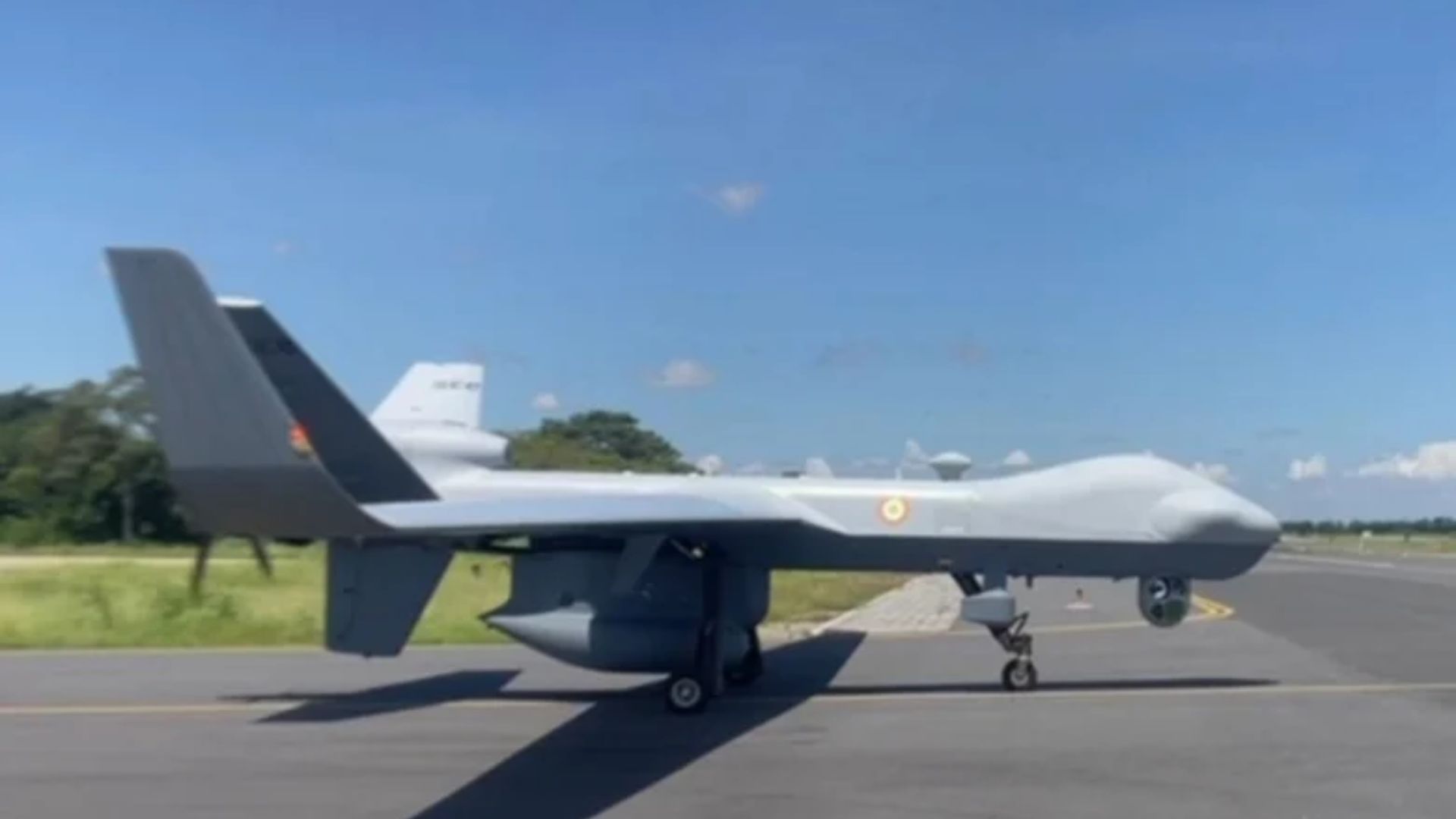Following the Defence Acquisition Council (DAC)’s clearance of the Predator drone deal on July 30, the Defence Ministry is now preparing to approach the Cabinet Committee on Security (CCS) for final approval, with the signing expected next month.
Although the Ministry has remained tight-lipped about the details, sources reveal that the Cost Negotiation Committee (CNC) has finalized the price for the acquisition—approximately USD 3.1 billion—from US-based General Atomics. The Defence Ministry will soon seek expenditure approval from the Finance Ministry before securing the final nod from CCS. The agreement must be signed by October 31 to avoid any price revisions by the manufacturer.
The Indian government plans to purchase 31 MQ-9B Predator drones equipped with air-to-surface missiles and laser-guided bombs under a government-to-government deal with General Atomics. Of these, 16 drones will bolster the Indian Navy’s maritime security in the Indo-Pacific, while eight will be allocated to the Indian Army, and the remaining eight to the Indian Air Force for strike missions along land borders.
Defence Minister Rajnath Singh and his delegation were briefed on the drone’s capabilities during their visit to the US in August. The Predator drone has proven its precision bombing capabilities in the Middle East and Afghanistan, effectively targeting high-value assets.
India has already been operating two Sea Guardian drones, an unarmed variant of the Predator, from INS Rajali in Tamil Nadu for maritime surveillance. Although their lease from General Atomics expired in January 2024, the Indian Navy extended it for another four years. These drones provide real-time maritime domain awareness across key areas, from the Sunda Straits in Indonesia to the Suez Canal and the southern Indian Ocean.
With the growing use of armed drones in global conflicts, such as in Ukraine and Gaza, India views this acquisition as essential. Non-state actors like the Houthis and Hezbollah have also begun using drones for attacks on international shipping and in Israel, respectively.
The urgency of acquiring armed drones has escalated for India, particularly as China and Pakistan already operate CH-4 weaponized unmanned aerial vehicles, with Beijing supplying these platforms to Islamabad.







